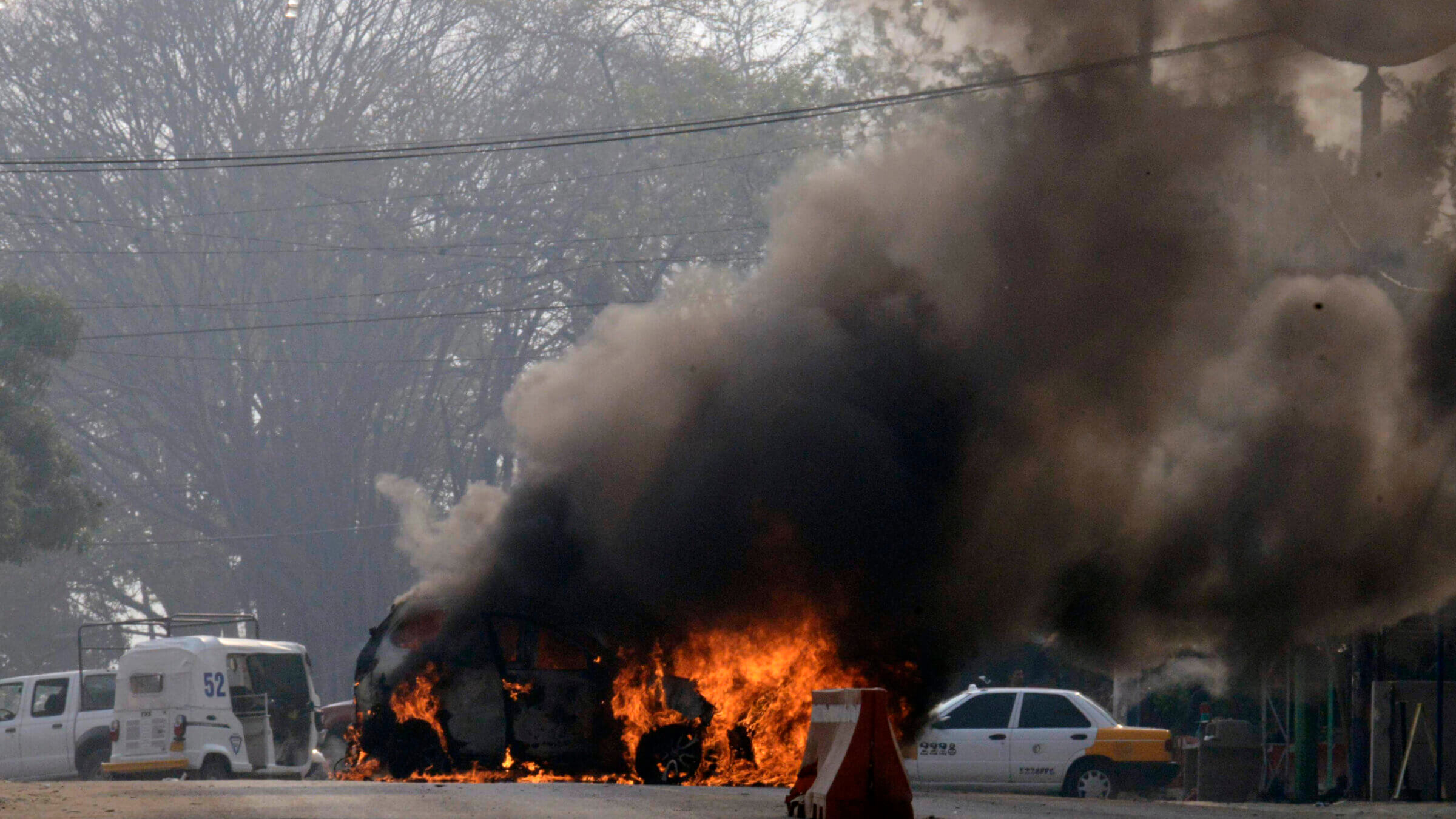Baja California cartel violence a rare threat for small but tightknit Jewish community
Cartel-fueled violence shut down Friday night services in Tijuana this past weekend, but services resumed Saturday

Smoke rises from a burning car in the state of Guerrero, Mexico, in 2019. The torching of cars and other violence took place last weekend in Baja California. Photo by Francisco Robles/AFP via Getty Images
Friday night services were canceled at a Chabad center in Tijuana because of threats of violence throughout the Mexican state of Baja California from a cartel boss.
Mexican National Guard troops patrolled the streets of Tijuana, Tecate and other cities after threats attributed to the Jalisco New Generation Cartel effectively shut down most of the region Friday night.
Services resumed Saturday morning as usual at Centro Social Israelita de Baja California, according to a representative who spoke on condition of anonymity. The representative was not authorized to speak to the press.
The U.S. consulate warned against travel by Americans to Baja California after the weekend of violence.
But Daniel Kachlon, a former member of the Baja California Jewish community and Tijuana-based business owner, said these types of threats are “not an everyday thing.”
Kachlon said that the Jewish community of Tijuana is relatively small, with low turnouts for services even on normal weekends. “It’s tough to get a minyan going,” he said. “Mexico City, you can go to a shul and there will be 300 people there. It’s not the same as Tijuana.”
Many people with Tijuana-based businesses who become successful move to the La Jolla neighborhood in San Diego, Kachlon said, but some still cross the border to attend Chabad services in Tijuana.
Although the cartel violence led to the charring of at least 15 vehicles and at least 11 deaths in the neighboring Guanajuato state, both Kachlon and the representative from Centro Social Israelita said that the area is mostly safe.
“I joined the community probably around 2014. So I was there five years. I walked to shul every Shabbat, never, ever had any issue or concern,” Kachlon said. In contrast, where he lives in Los Angeles, “you could probably imagine the amount of homeless people I pass walking to shul on Shabbat.”
The representative from Centro Social Israelita also said that safety was not a concern after Friday night, adding: “Baruch Hashem, we were able to have Shabbat services and Kabbalat Shabbat.”
Despite the overall safety of the area, there were a number of violent incidents. “One of my employees, her boyfriend is an Uber driver. He picked up some passengers … and they burned his car down,” Kachlon said.
He added that this type of violence is unusual, noting that “there’s a lot of beautiful things about” the Jewish community in Tijuana, but generally, it’s “pretty boring.”














